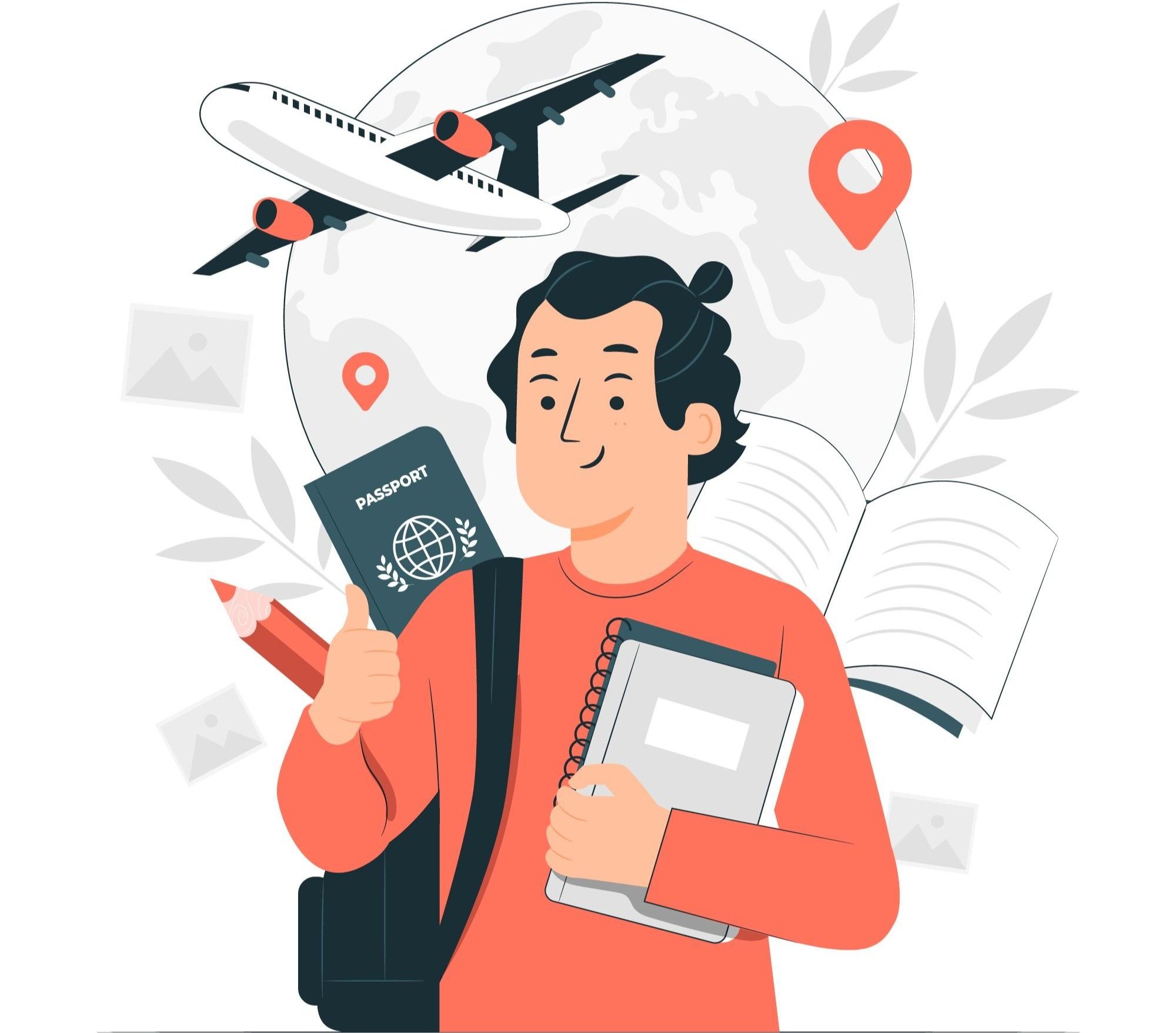A Study Abroad Preparation Checklist For Your Adventure
You’re about to embark on the adventure of a lifetime! Study abroad programs are a great way to see more of the world and meet new people. With so much to prepare, it can be easy to lose track of things, and if you’ve never been abroad, it can be tough to know exactly what you should bring.
We have you covered! Our checklist for students studying abroad will ensure you arrive at your destination ready to hit the books and explore your new, temporary home.
Study abroad checklist
What do you need to study abroad? A lot of paperwork! This study abroad checklist assumes that you’ve already applied to and been accepted for a study abroad program. If that’s not the case, you should start the process, the research, the application, any required testing, etc., one year before the semester begins.
Passport: Thanks to the pandemic, getting a passport takes much longer than usual. If you’re even considering taking part in a study abroad program, start the process of applying for a passport immediately.
Vaccine Information: Check local requirements for Covid and other vaccines.
Student Visa: Because you’ll be in the country for an extended period of time, most places require a student visa. Being approved can be a lengthy process, so apply as soon as possible.
Financial Aid/Scholarships: Every dollar in financial aid or scholarships is a dollar you don’t have to spend out of pocket. Apply for as much financial aid as you can and every scholarship you might qualify for.
Student Health Insurance: Your visa may require you to have medical insurance in place, but even if it doesn’t, it’s dangerous to travel anywhere without insurance. Your primary or school-sponsored insurance may not cover you when you travel abroad, so it’s smart to explore options for outside medical coverage.
Housing: Study abroad students generally have three options for housing, living on-campus, off-campus, or with a host family. If you choose to live off-campus, beware of housing scams.
Flights: Generally, the best time to book a flight at the lowest cost is six weeks from your departure date.
Travel Credit Card: Check the fine print for any credit cards you may already have. If they charge a foreign transaction fee, look for a card that doesn’t. Foreign transaction fees can be as much as 3%.
Local Currency: You don’t need to bring a ton of local currency with you. It’s almost always cheaper to take money out of a local ATM rather than exchange it before you leave. However, you might want to get a small amount of cash in small bills for things like tipping cab drivers or servers in the first few hours after you arrive.
Medical and Dental Appointments: Some visas may require medical tests or an exam. Even if they don’t, it’s a good idea to see your general practitioner before you leave, especially if you’re on any prescription drugs, so that you can get the appropriate refills. And a dental checkup can ensure you don’t have any dental emergencies (which often include a lot of pain) in an unfamiliar country.
Notify Your Bank: Let your bank and credit card companies know where you’re going and for how long. This way, they won’t refuse what would otherwise look like suspicious transactions. Also, write down the 24-hour international phone numbers for those accounts in case your cards are lost or stolen, and you need to cancel them.
Contact Your Cell Carrier: Let your cell phone company know you’ll be abroad and ask what your options are. Many carriers offer a low per-day cost for international coverage that won’t leave you with huge roaming charges.
Do Some Research: Read up on your destination and learn local laws and customs for things like politeness and tipping. Learning a few phrases in the local language is also polite and extremely helpful.
A Converter: Depending on the country, your plug-in items like laptops, chargers, and hair tools may need an adapter to be plugged in.
Study abroad must-haves
The above list are requirements; these are must-haves, not in the sense that you cannot study abroad without them, but that they’ll make your time in the program better and more comfortable!
Over-the-Counter Medications: It’s not that your temporary home won’t have these items; it’s that if you urgently need them, the last thing you’ll feel like doing is navigating an unfamiliar pharmacy. Bring things like headache remedies, something for an unhappy digestive system, and something to relieve cold and flu symptoms.
First-Aid Kit: For the same reasons as listed above. You don’t want to go out searching for things like Band-Aids or Neosporin when you have a cut or burn.
Weather Appropriate Clothes: “Fall” clothes or “summer” clothes is too broad. Check local conditions and bring the appropriate clothing. Summer in Atlanta is much different to summer in London!
Portable Charger: Hopefully, you’ll spend many happy hours exploring your new location. Bring a portable charger, so a dead phone doesn’t send you back to the dorms early.
A Journal: Yes, we document everything on our phones and Instagram pages now, but there is something to be said for reading over memories. Bring a journal and use it! Your future self will thank you.
Day Bag: You’re going to class just as you do at your current university, so bring a bag to carry your supplies and for when you’re exploring your new location.
Weekend Bag: If you’re a US student studying abroad in Europe, you’re dazzled by the fact that you can hop on a train or a plane for a few euros and be in a new country in an hour or less. Take advantage and bring a weekend bag. Leave it packed so you can travel on a moment’s notice!
Most of all, bring an open mind and a sense of adventure. Happy travels!


